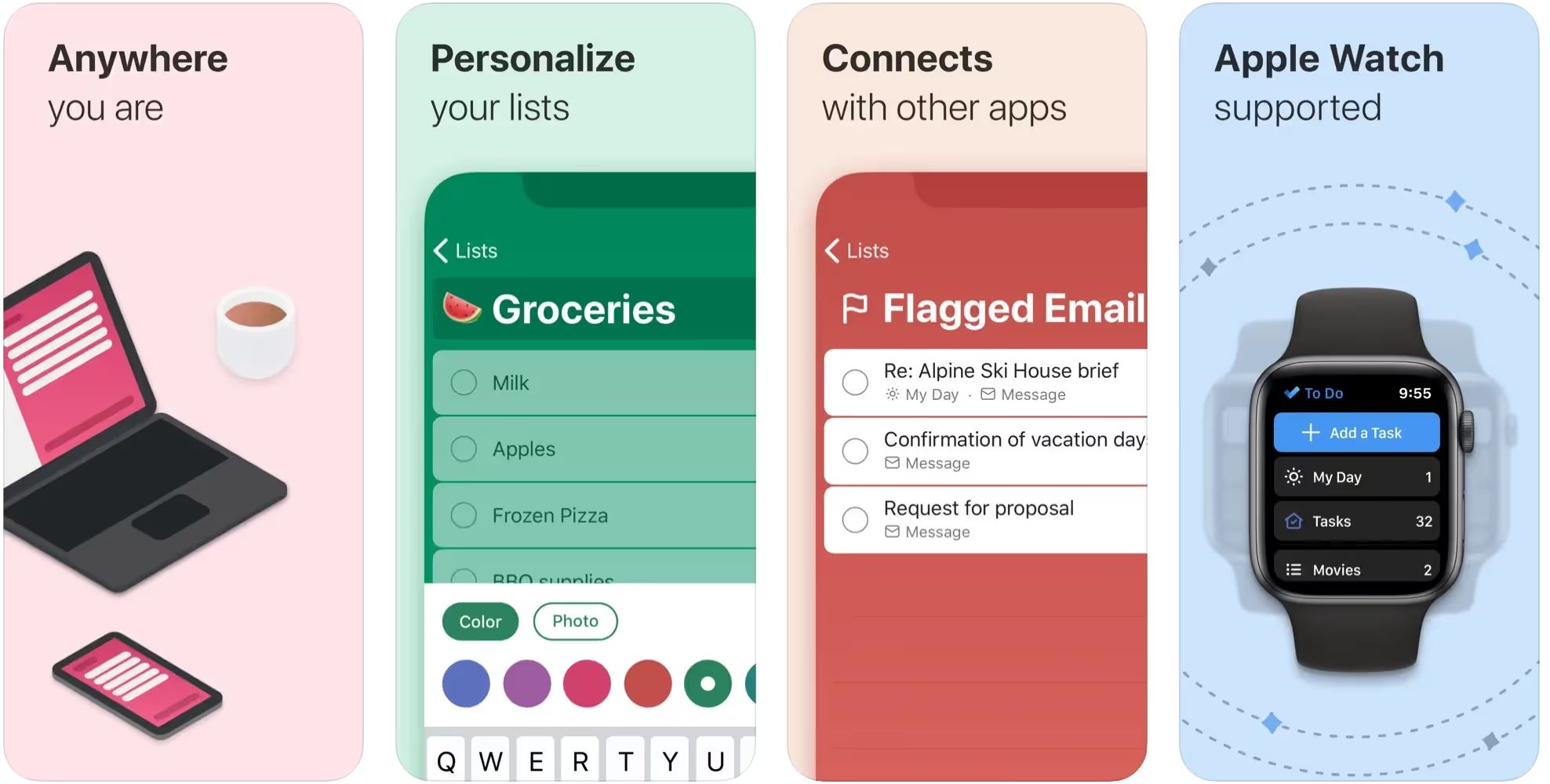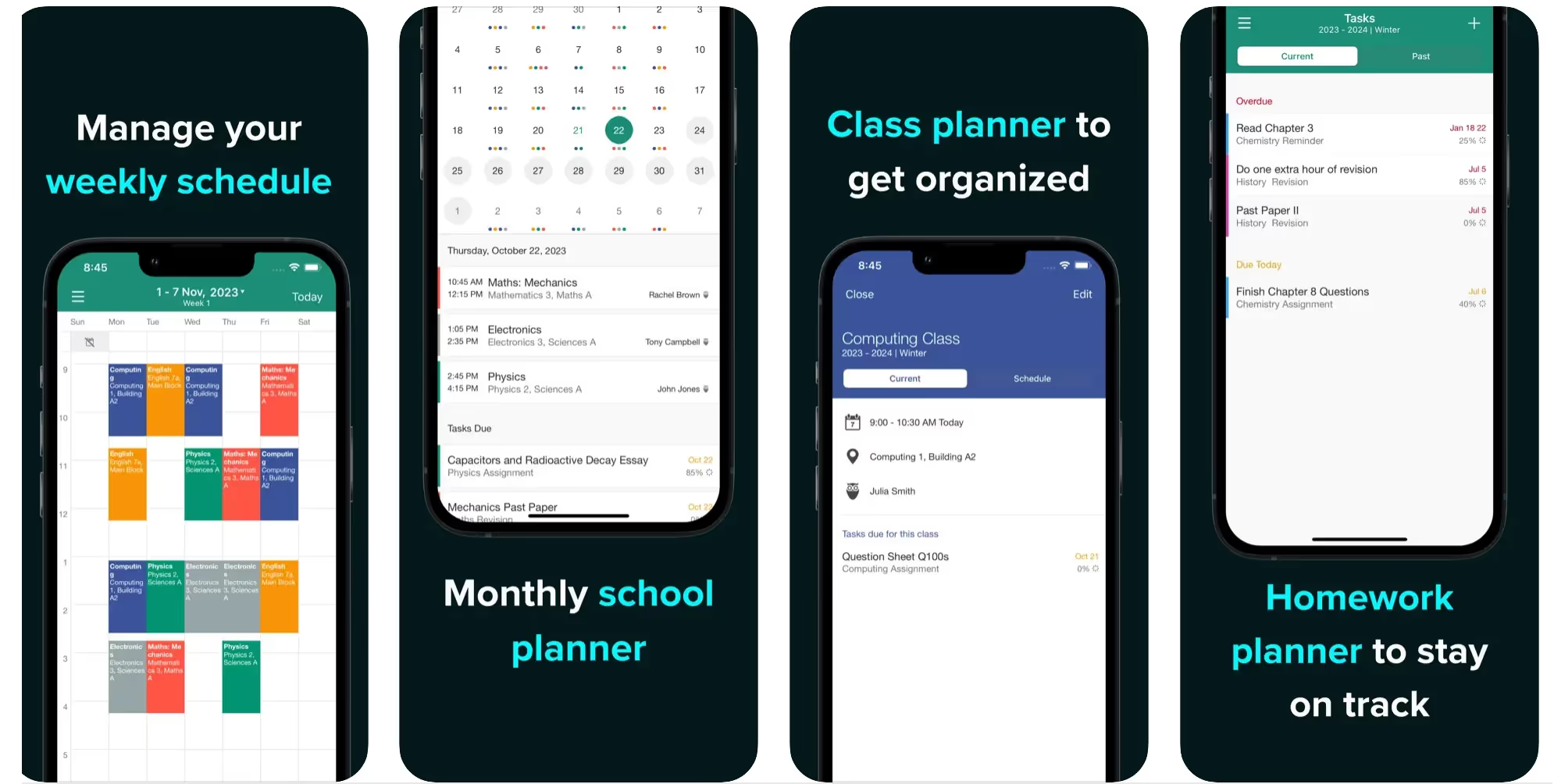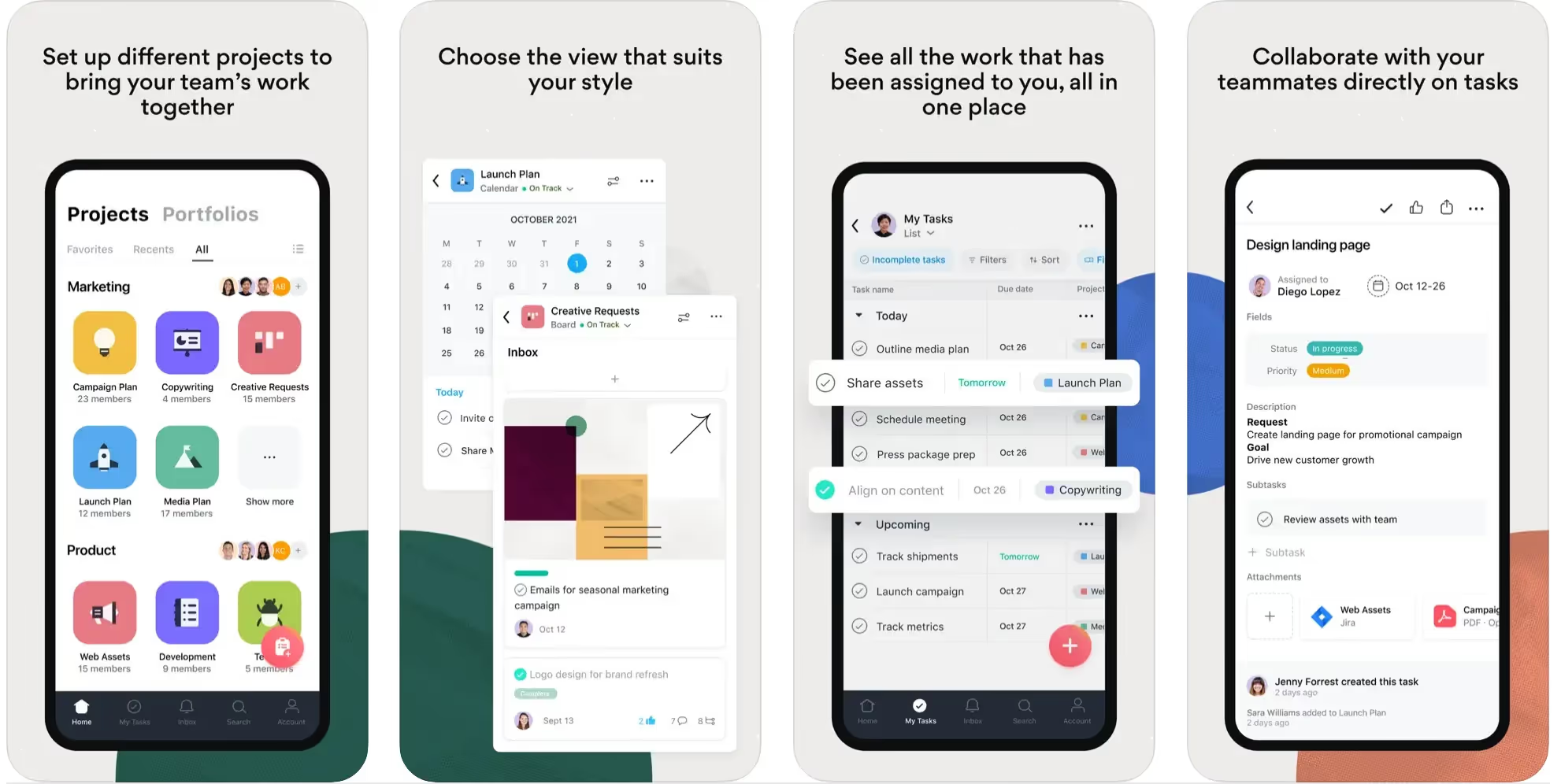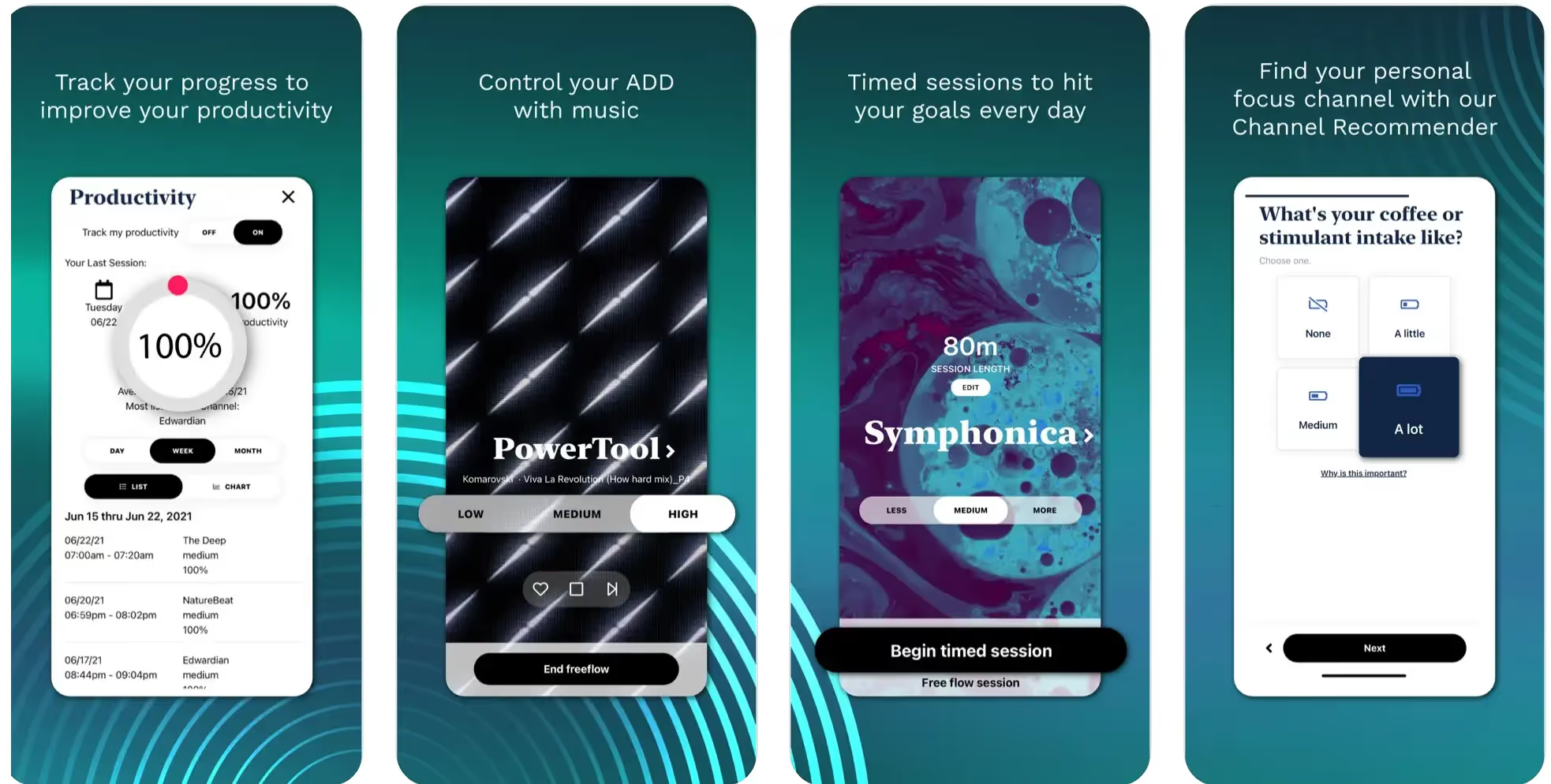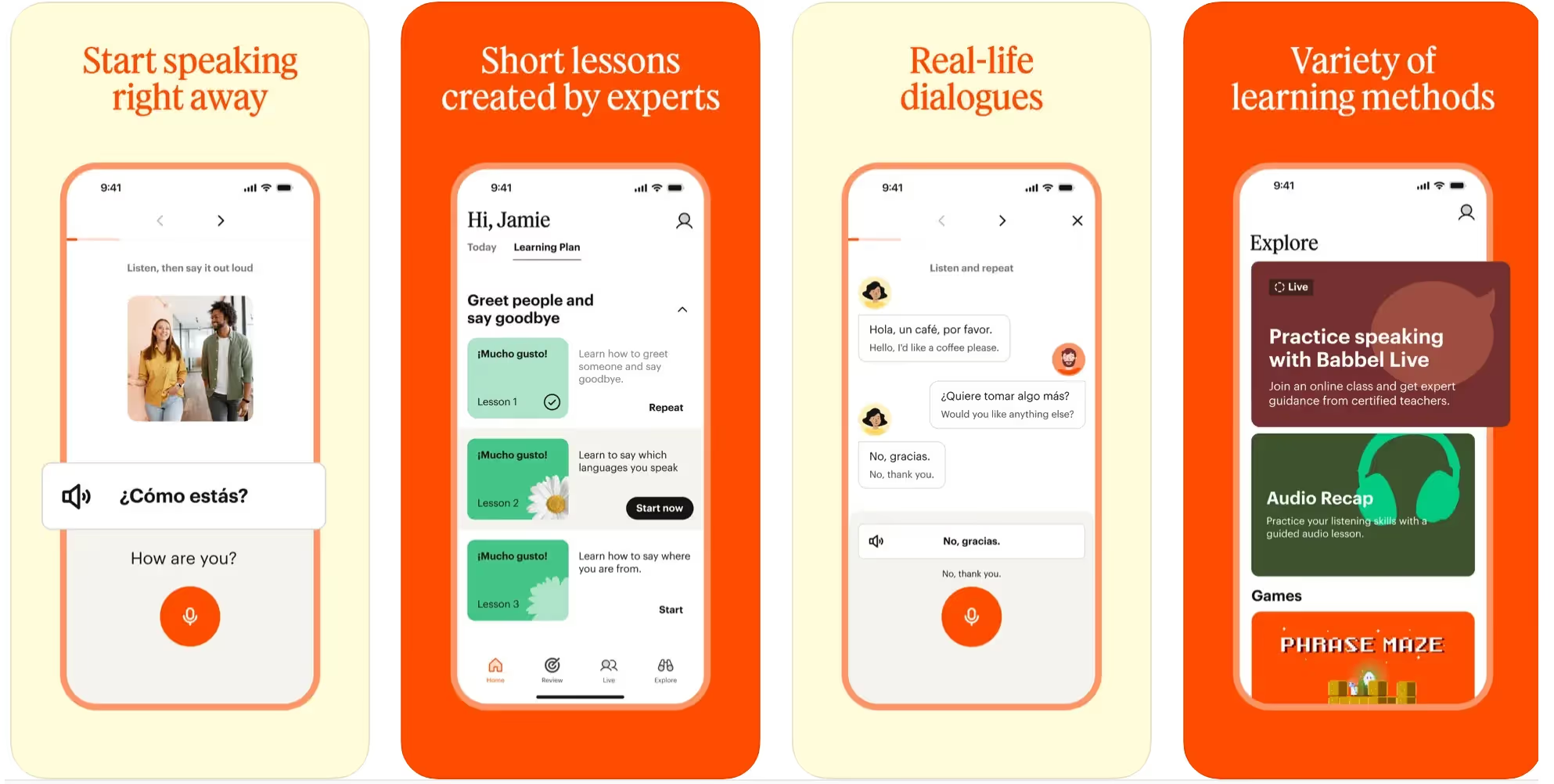In the age of the smartphone and the Internet, apps for studying offer more ways to learn and stay focused than ever before, transforming smartphones and laptops into powerful educational tools.
Of course, there's also simply more to learn. And there are plenty more distractions, too (if that constant Ping! from your phone is anything to go by). But fear not: whether you're struggling while keeping track of your notes, doing an exam countdown, memorizing that list of vocab words, juggling your classes, doing a, or just stopping yourself from doom-scrolling... There's an app for that!

The Science of Study Apps
Plenty of scientific research has sought to learn more about... well, learning. The resulting insights and theories help us develop more effective teaching materials, learning aids (like study apps!), and advice for students. There are plenty of psychological tricks of the trade to help us learn more effectively, backed by research. These include:
- Note-taking: Probably the least surprising, but yes—taking (and reviewing) notes helps us retain information better. Plenty of apps can help you take and organize notes. However, there are right and wrong ways of taking notes. Verbatim note-taking, for example, is less effective than summarizing or paraphrasing.
- Spaced repetition: It's also not surprising that repeatedly thinking about something helps us remember it. But a key insight from educational psychology is that the most effective repetition is spaced— meaning, it works best when we take breaks between rounds of studying. Study apps that space out lessons and let you plan out the timing of your studying can help prevent useless cramming and maximize learning.
- Self-testing: Making quizzes for ourselves can also boost our learning. This forces us to hold relevant information in mind and can show us which parts of the material we're still shaky on. Study apps that create flashcards are a great tool for this, or you can ask a friend to quiz you.
- Focus: Distractions like social media can easily sabotage our learning, so it's important to keep a clear head (and desk!) while you work. This can be especially challenging for those with ADHD, but don't worry; we've written up some ADHD-specific tips. There's some evidence that listening to music while you work can help sustain focus, so some study apps include background music options.

- Multimedia: Using multiple forms of media—from video to audio, to images—while teaching has been shown to improve students' performance. It shows us the same material in different ways, helping us get a well-rounded idea of complex concepts. Note-taking apps with multimedia capability come in clutch for this.
- Gamification: Incorporating game design elements into study apps has also met with plenty of success in recent decades. Some features typical of games that you might find in a study app include earning points, following a story, or competing for a spot on the leader board (Take that, n00bz!)
- Working with others: Studying doesn't have to be done in isolation. Working with other students and having accountability partners is thought to keep us engaged and motivated while learning. It can also protect our mental well-being, alleviating stress. As an example, in our accountability app, a professional human coach will work alongside you to make sure you're meeting your goals.

We've already reviewed some top productivity apps, but in this article we're branching out, looking at the best study apps that tackle note-taking, memorization, focus, time management, and more. They use all the tricks in the book—including user-friendly interfaces, games, collaborative features, and automated reminders—to keep you engaged and productive. Most are available on iOS, and many have desktop versions with cross-platform compatibility. So you can study, plan, and focus both on your computer and on the go.
A Study App for Every Task
1. Note-Taking
Digital note-taking has great perks: you never run out of paper (You're welcome, Mother Earth!), you can organize and search through your notes with the click of a mouse, and you can export, print, and share them however you like. These note-taking study apps are perfect for anyone needing to stay on top of their digital study materials.
Notion

Notion is an all-in-one workspace tool for keeping track of your school notes and projects. You can think of it as a set of building blocks; by making pages composed of "blocks" of images or text, you can craft and rearrange not only multimedia study notes but also databases, to-do lists, calendars, and more. In fact, Notion is so flexible, that it might take some time to familiarize yourself with its features.
Using Teamspaces, you can also share your pages with others to keep track of tasks and make collaborative edits... perfect for any group project. Plus, for an added fee, Notion AI can quickly answer questions about your project (What do we need to get done this week, again?), provide writing suggestions, and brainstorm ideas for you.
Price:
- Free
- Plus: $10 per seat/month
- Business: $15 per seat/month
- Enterprise: Contact for pricing
- Notion AI: Add on $8 per member/month annually or $10 per member/month billed monthly
Rating:
- Google Play - 4.7 ★
- Apple App Store - 4.8 ★
Pros:
- Flexibility and Customization: A wide range of templates and customizable content blocks suit every need: from study notes to a group project to-do list.
- All-in-One Workspace: An intuitive sidebar organizes your pages, allowing you to combine note-taking, task management, databases, calendars, and more.
- Great Community and Support: A large community with vast templates and tutorials.
Cons:
- Learning Curve: The app's versatility can be overwhelming for new users.
- Performance Issues: The app can be slow, especially with large databases or complex pages.
- Limited Offline Access: Full functionality requires an internet connection.
OneNote

Microsoft’s OneNote doesn't just let you type and organize notes in neatly organized pages; it also seamlessly integrates free-form annotation, sketches, and highlights by digital pen or touchscreen. OneNote also supports Optical Character Recognition (OCR), which lets you upload printed and handwritten notes straight into the app. You can also incorporate images, voice recordings, and other files for more multimedia studying power, and invite others to collaborate on your pages.
This free app is a great low-cost option for college students in need of a flexible note-taking app that can be accessed anywhere, on- or offline. Bonus: if you have a Microsoft 365 subscription, adding on Copilot (Microsoft's AI companion) will allow you to automatically generate summaries of your notes, or rewrite them for clarity.
Price:
- Free
Rating:
- Google Play - 4.7 ★
- Apple App Store - 4.7 ★
Pros:
- Generous Free Version: Almost all OneNote features are included in the basic version, which is free to use with a Microsoft account. A Microsoft 365 subscription adds additional storage space.
- Rich Multimedia Support: Ability to embed images, audio, video, and printed or handwritten notes/sketches.
- Microsoft Ecosystem Integration: As part of the Microsoft family, it works well with other Microsoft products like Office and OneDrive.
Cons:
- Complex Interface: The interface can be overwhelming for new users.
- Synchronization Issues: Syncing issues can occur with large notebooks, or due to poor internet connectivity.
- Platform Feature Disparities: Not all features are available on all platforms.
Evernote

Similarly to OneNote, Evernote enables flexible multimedia note-taking and organization. With its clean, user-friendly interface, you can easily add in hand-drawn sketches, or audio/video files. You can also scan and upload text with its OCR support, and collaborate with other users on notebooks.
Another useful feature of Evernote is its scheduled reminders: you can time your exam notes to ping you after 10 minutes of studying, for example. Finally, with Professional plans and above, you can use AI to easily revise or summarize notes, or make complex search queries. Though some of Evernote's more useful features are beyond a paywall, the price could be worth it for those in need of an intuitive yet powerful note-taking system.
Price:
- Free
- Personal: $14.99 per month or $129.99 per year
- Professional: $17.99 per month or $169.99 per year
Rating:
- Google Play - 4.0 ★
- Apple App Store - 4.4 ★
Pros:
- Rich Multimedia Support: The app supports text, images, audio, web clippings, and attachments.
- Intuitive Interface: Users agree that Evernote is easier to navigate and learn than some other note-taking apps.
- Powerful Tools: Evernote streamlines your note-taking with advanced web clipping and OCR.
Cons:
- Subscription Cost: Many useful features (including a reasonable amount of storage space) require a subscription, which can be costly for some users.
- Syncing Issues: Occasional syncing delays or conflicts have been reported by users, impacting real-time collaboration.
- Customer Support: Support options may be limited or less responsive for free users, affecting the user experience.
Google Keep

Google's free note-taking app allows users to create notes with text, images, and audio clips. It includes an OCR functionality as well as tools to share your notes with others in real time. Its interface is kind of like a virtual pinboard... perfect for pulling up quick, succinct notes and bits of data (maybe less so for long, in-depth study notes).
Uniquely, in addition to timed reminders, Google Keep can also send location-specific reminders. For instance, you can schedule your grocery list to open when you've arrived at the grocery store. It's a helpful and convenient option to keep smaller bits of important info at the ready, when and where you need them.
Price:
- Free
Rating:
- Google Play - 4.1 ★
- Apple App Store - 3.5 ★
Pros:
- Free to Use: No cost, fully functional with a Google account.
- Google Integration: Works well with other Google apps including Drive, Docs, Calendar, and Assistant.
- Reminders: Offers time and location-based reminders.
Cons:
- Limited Features: Basic compared to other study apps, and ill-suited for long, complex notes.
- No Folder System: Uses labels and colors instead of folders for organization.
- Limited Offline Access: Requires a mobile app for offline access, and has limited offline functionality on the web.
Apple Notes

If you're an Apple user, you might think of the Notes app as ultra-basic. But it can do more than you might realize; Apple's free, built-in note-taking app includes a folder-based organization system, search bar (which also searches attachment files), OCR tools, and capability to incorporate tables, hand-drawn notes/sketches, and video/file attachments. While it stays less powerful than some other study apps on our list, it offers an easy-to-use and safe option for basic note-taking.
Price:
- Free
Rating:
- Apple App Store - 4.9 ★
Pros:
- Seamless Integration: Works well with the Apple ecosystem (iCloud, macOS, iOS, iPadOS).
- Simplified Interface: Start making notes quickly with its intuitive, simple interface.
- Security: End-to-end encryption for secure notes.
Cons:
- Apple Ecosystem: Limited to Apple devices.
- Basic Features: Lacks useful features found in other study apps, such as version history, web clipping, or AI tools.
- Limited Formatting Options: If you're a highlighting fiend, beware; Apple Notes is bare-bones when it comes to formatting options.
2. Flashcards and Memorization
Quick, what does adumbrate mean? If you're not sure, or you have other bits of info you need memorized, these flashcard study apps have you covered. Let's adumbrate (that is, roughly describe) them below...
Anki

Anki is a flashcard-making app that uses spaced repetition and self-testing to help you memorize efficiently. It uses an algorithm to determine the optimal time to re-test you on specific pieces of material, based on your feedback. Say goodbye to wasting your time studying your entire 100-card deck to death!
It's ultra-customizable, allowing you to create flashcards with rich formatting (including video/audio clips and images, highlights, and color). Think beyond vocab words; you can memorize map locations, or even practice musical chords! You can also modify your "learning steps": the number of times you're shown a particular card, and the amount of time in between. Anki offers detailed stats to track your progress over time. Plus, you can synchronize your decks across multiple devices with the AnkiWeb service.
Price:
- Free (Other Platforms)
- AnkiMobile Flashcards: $24.99 (iOS)
Rating:
- Google Play - 4.7 ★
- Apple App Store - 4.1 ★
Pros:
- Generous Free Version: Comes with all features free on most platforms.
- Highly Customizable: Offers many card types, formatting options, timing options, and add-ons.
- Community Resources: An active user community to share decks and learn more.
Cons:
- Outdated UI: The interface is functional but less intuitive, making it harder to learn for new users.
- iOS App Cost: The iOS app is paid (though the Android app is free).
- Quality Control: Relying mostly on unregulated, crowd-sourced content, premade card decks may be of poor quality or contain factual errors.
Quizlet

Quizlet is another flashcard app that's perfect for memorization. After you create flashcards—which can include images and text, and can be efficiently uploaded from a spreadsheet—you can review them in various study modes, including practice tests. Look over your deck, then when you're ready for a challenge, go into Learn mode for multiple-choice, true-false, and write-in quiz questions. Or try out games like Match to shake up your study session!
With a paid Quizlet Plus subscription, you can also use adaptive study modes, which keep track of your performance and use that data to create and refine the next study session, ramping up the difficulty over time. It also uses spaced repetition in its Scheduled Review feature, sending periodic reminders to review your flashcards. Paid or unpaid, however, Quizlet enables study sessions packed with variety.
Price:
- Free
- Quizlet Plus (Monthly): $7.99 per month
- Quizlet Plus (Annual): $2.99 per month
- Quizlet Plus (Group order): $68.38 per year
Rating:
- Google Play - 4.7 ★
- Apple App Store - 4.8 ★
Pros:
- Engaging Learning: Interactive games and multiple learning modes to make studying fun and keep users engaged.
- Sleek Design: An aesthetic, user-friendly interface makes navigation a breeze.
- Library and Collaborative Features: Extensive library of curated and user-generated study sets, as well as easy sharing and collaborative editing tools.
Cons:
- Subscription Cost: Advanced features leveraging performance feedback and spaced repetition require a Quizlet Plus subscription.
- Ads In Free Version: The free version includes ads that can be distracting.
- Limited Customization: There are fewer customization options for flashcard design and spaced repetition tools compared to some competitors.
Brainscape

Brainscape is another effective and user-friendly flashcard app that incorporates spaced repetition. Its flashcards can include images and audio/video clips and can be uploaded from spreadsheets. When you review your cards, you rate the difficulty on a scale of 1-5, which influences how much time will pass before you see the card again. Though less customizable than Anki, Brainscape offers a user-friendly experience as well as spaced repetition tools even in its free version.
Price:
- Free
- Brainscape Pro: $19.99 per month
- Brainscape Pro Semester: $59.94 for 6 months
- Brainscape Pro Yearly: $95.88 per year
- Brainscape Pro Lifetime: $199.99 (one-time payment)
Rating:
- Google Play - 4.7 ★
- Apple App Store - 4.8 ★
Pros:
- Spaced Repetition: Uses spaced repetition to enhance memory retention.
- Flashcard Customization: Allows flashcards with audio/video clips and images for flexible learning.
- Content Quality: Has many premade decks certified by relevant professionals.
Cons:
- Subscription Cost: Important features—including unlimited audio/video incorporation and card deck access—require a paid subscription.
- Limited Timing Customization: Lacks customization options for spaced repetition features.
- Fewer Organizational Options: Brainscape has fewer options for organizing your decks than some other apps.
Cram

Cram offers both flashcard-making tools and sample essays on a range of scholarly topics. Similarly to the other apps on this list, Cram uses spaced repetition principles to personalize your flashcard studying, flagging incorrectly answered cards to be reviewed more frequently. It also shares the import/export tools and image incorporation options found in other flashcard apps.
Price:
- Free to use
Rating:
- Google Play - 4.7 ★
- Apple App Store - The link to the official app for iOS is no longer operational
Pros:
- Easy to Use: User-friendly interface for creating and organizing flashcards.
- Variety of Study Modes: Offers modes like Memorize, Cram, and Test to suit different study needs.
- Sample Essays: Cram's catalog of sample essays spans diverse subjects and offers ideas for writing topics.
Cons:
- Ad-Supported Free Version: The free version includes ads, which can be distracting during study sessions.
- Limited Customization: Limited options for customizing flashcards and card review schedules compared to some competitors.
- Basic Interface: The design is functional but lacks visual appeal and modern aesthetics.
3. Accountability & Motivation
Having someone (or something) to stand by your side and keep tabs on your progress can keep you motivated and productive. These apps use creative strategies to give you that little boost and keep your head in the game.
GoalsWon

Imagine having your very own personal coach dedicated to your success, helping you plan out your studies and schedules, and making daily check-ins to keep you motivated and on track with your deadlines. With GoalsWon, you'll not only set realistic academic and personal goals, but you'll also get expert guidance to help you meet them every step of the way. This platform is designed to streamline your goal-setting journey, making sure you are efficient with your time and energy and are ready in time—whether that’s acing your next exam, managing time better, or balancing schoolwork with life. It's an accountability buddy but make an expert in productivity!
Price:
- Free
- Monthly: $90 per month with a 7-day free trial
- Yearly: $60 per month with a 14-day free trial
Rating:
- Google Play - 4.6 ★
- Apple App Store - 4.9 ★
Pros:
- Daily Accountability: Keeps you consistently progressing with regular check-ins.
- Personalized Human Coaching: Enjoy one-on-one support and tailored feedback from experienced coaches.
- Structured Goal Management: Split your larger goals into manageable, actionable tasks.
Cons:
- Cost: Our premium service may be a higher investment for some users.
- Limited Free Features: Access to a coach requires a subscription.
Habitica

Ever wanted to dive straight into the world of your favorite RPG? Habitica is a productivity app that aims to "gamify your life." It flavors habit tracking and task management with a fantasy RPG, where you can design and level up an avatar, fight monsters with IRL friends as an adventuring party, and earn rewards like battle armor and magic skills for completing tasks. It separates Habits—things you want to do frequently—from Dallies—things you want to do every day—from one-off To-Dos. So you can tackle everything from your school assignments to your eating habits, all in one magical adventure.
Price:
- Free
- Monthly Subscription
- 1 month: $4.99
- 3 months: $14.99
- 6 months: $29.99
- 12 months: $47.99
Rating:
- Google Play - 4.7 ★
- Apple App Store - 4.0 ★
Pros:
- Gamification: Makes task management and habit-building enjoyable by turning them into a game.
- Customizable: Users can create custom tasks and rewards tailored to their goals.
- Community Support: Offers a social aspect with parties and guilds for collaborative goals and accountability.
Cons:
- Time-Consuming: Managing game aspects can become a distraction from actual productivity.
- In-App Purchases: Some features and items require in-app purchases, which may not appeal to all users.
- Internet Dependency: Requires an internet connection for most features.
Streaks

While much less fantastical, Streaks uses a similar gamified motivation to keep you on-task. In Streaks, you build and maintain streaks by keeping up with your tasks. It's especially good for developing and keeping regular habits; for instance, you might make a streak of studying for an hour each day on important class material. Then, when you've been at it for a while, take a look back at all the progress you've made with its built-in analytics for an extra boost!
Price:
- $5.99
Rating:
- Apple App Store - 4.8 ★
Pros:
- Simple Interface: A simple, easy-to-use, appealing design.
- Health Integration: Syncs with Apple Health for fitness and health goals.
- Reminders: Timely notifications to keep users on track.
Cons:
- iOS Exclusive: Not available for Android users.
- Basic Functionality: Lacks advanced habit-tracking features.
- Limited Social Features: Minimal community support or social interaction, relying on self-accountability.
HabitNow

HabitNow is a planner app designed to help users create and maintain daily habits and routines, on top of managing their daily tasks. It can flexibly keep track of your progress on different types of goals by creating to-do lists, notes, alarms, and reminders, logging timed activities with its built-in timer, and providing analytics to visualize your success. HabitNow blends task management with habit tracking, aiming to spark motivation to reach your goals and become your best self.
Price:
- Free (up to 7 habits)
- Premium: $9.99
Rating:
- Google Play - 4.8 ★
Pros:
- Comprehensive Tracking: Combines habit tracking with task management.
- User-Friendly: Intuitive and easy-to-navigate interface.
- Flexible Scheduling: Supports different habit frequencies and routines.
Cons:
- Android Focused: Primarily available on Android.
- Ads in Free Version: The free version includes ads that can be distracting.
- Self-Motivated: The lack of social aspects or gamified rewards means this app relies on progress-based motivation.



